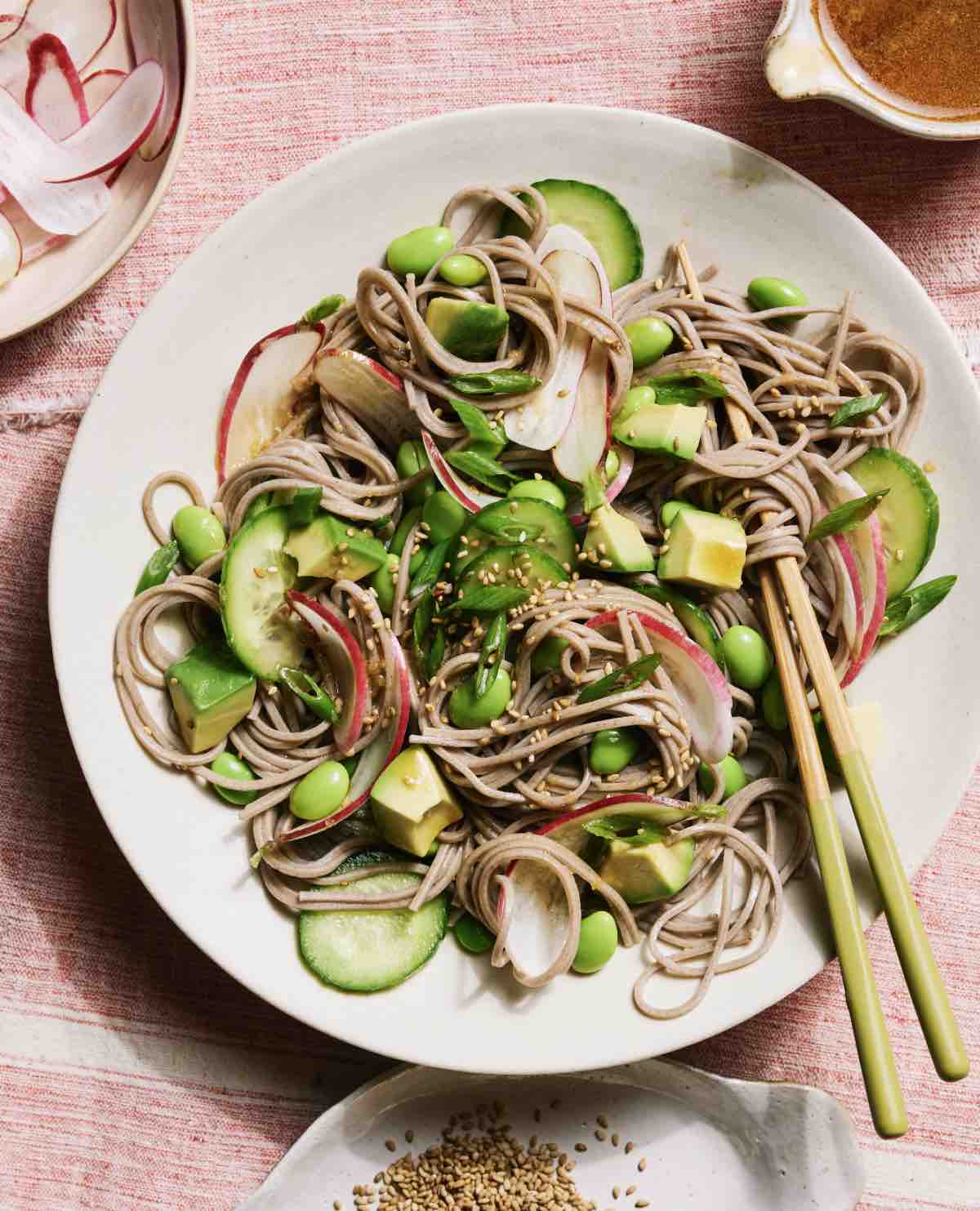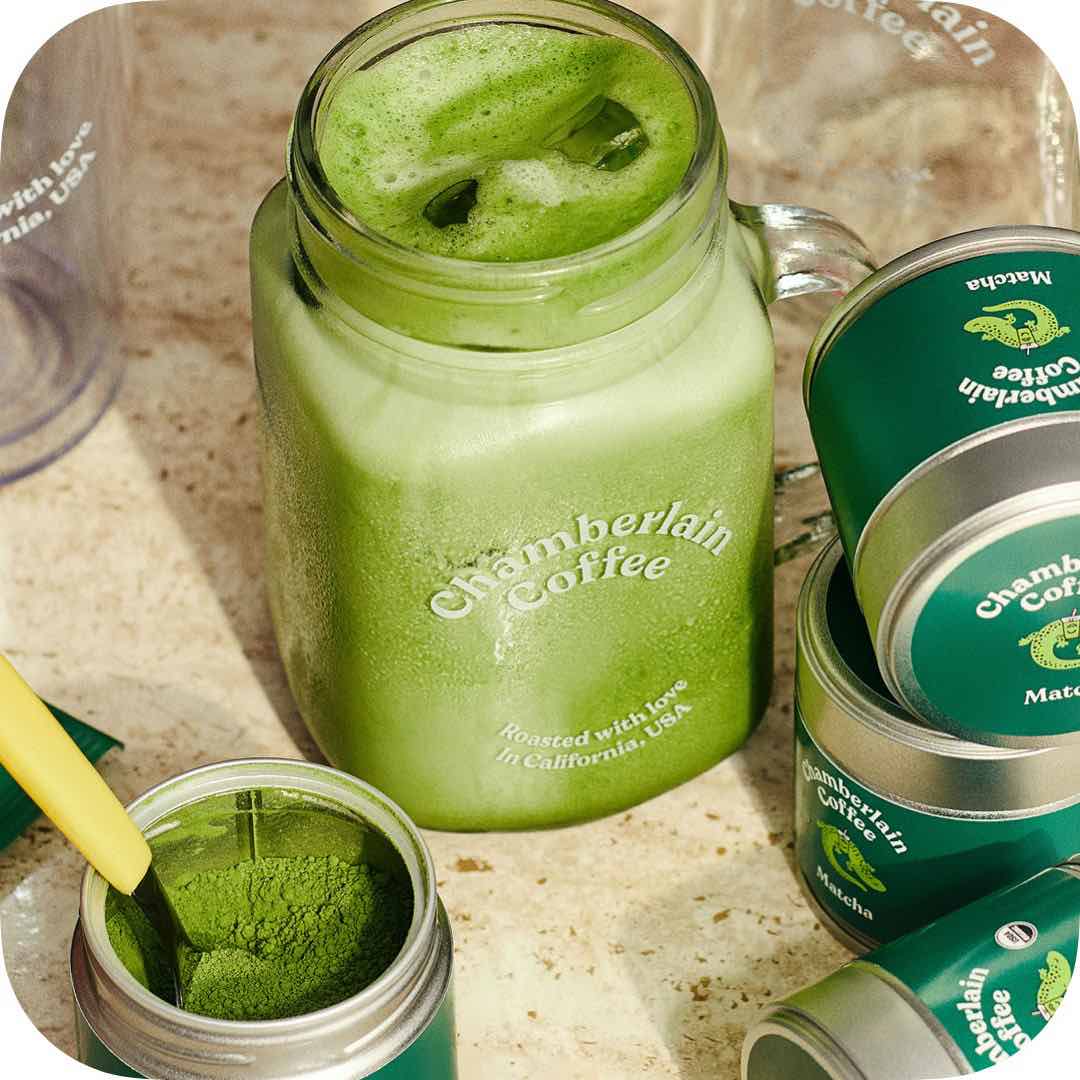Our team is dedicated to finding and telling you more about the web’s best products. If you purchase through our links, we may receive a commission. Our editorial team is independent and only endorses products we believe in.
There are few food products I trust less than a breakfast shake. For whatever reason, the industry that has sprouted up around protein shakes and smoothie packets is one laden with big claims that hold little water (or nut-based milk). I remember the late-night infomercials that marketed meal-replacing shakes to me back when I was a teenager. Then there are companies like Herbalife, a multi-level marketing scheme with nutritional shakes at its center, and Soylent, which got the tech world fussed up around the idea that future people might never have to cook again (imagine the bio-hacking-enabled productivity gains!).
This is why, when I recently received an email about Kyoku, a superfood breakfast shake made with whole ingredients like broccoli, kale, and sweet potatoes, among (lots of) other things, my immediate reaction was skepticism. But Kyoku ($72 for 12 servings) seemed different from the bunch — more like a solution and less like a shortcut — so, without abandoning my doubt, I ordered a few sample packets.
Kyoku's Makers Know What They're Doing
My vote of confidence in Kyoku came primarily from the source of that email: an online marketplace for sports nutrition products called The Feed. The Feed was founded by Matt Johnson, who took a special interest in how nutrition affects athletic performance while managing Tour de France cyclists as president of the EF Education-EasyPost pro cycling team.ᅠ
The model he and his team have built at The Feed relies on rigorous testing and feedback from thousands of athletes training and competing at all levels as well as an awareness of scientific studies around nutrition. Not only does The Feed sell things like energy bars and electrolyte drink mixes, but it also advises athletes on how to appropriately use them (I've used fueling plans from The Feed to get through 100-mile bike rides and a few marathons).
The reason we're talking so much about The Feed is because the company bought Kyoku in 2021. In the email I received, Johnson explains why: unlike other breakfast shakes, Kyoku kept him full through the morning and into the afternoon and was sufficient fuel for workouts, and it did this without spiking his glucose levels. This is what I've sought from the smoothies I make at home, from scratch, and it's something they've never given me.

What's in the Powder
Everything in Kyoku is plant-based and vegan. In addition to the ingredients listed above, there's apple, tart cherry, beets, spinach, collards, black pepper, coconut, chia seeds, turmeric, and ashwagandha, plus chickpea, hemp, and pea protein, and some stabilizers. There's a heavy emphasis on so-called superfoods because they're packed with nutrients as well as fiber, antioxidants, minerals, vitamins, and anti-inflammatories. (On more of a basic, nutrition label level, a serving of Kyoko contains 200 calories, 5 grams of fat, 22 grams of carbs, 4 grams of sugar, and 22 grams of protein.)
You wouldn't guess any of these foods are inside a packet of Kyoku upon tearing one open; the powder inside is pale brown. To get it that way, its makers flash freeze those foods whole and then dehydrate them before obliterating them all into nutritious dust.
Kyoku Doesn't Taste Like Your Typical Protein Shake
The packets I received in the mail came with a recipe card with two recipe suggestions. The first and simpler of the two was to blend a serving of Kyoku with 14 ounces of plant-based milk (I used oat). I did this on a morning when I felt hungry, which isn't always the case, though I do eat breakfast most days.
Kyoku tastes like a powdered smoothie, which is to say that it doesn't taste like the smoothies I make from scratch with frozen fruit, oat milk, and spinach. It has a hint of protein — if you've ever had a protein smoothie, you know what I mean — likely due to the chickpea and pea protein on the ingredient list, but not in an overpowering way. But it also tastes good, and not in the way that we tell ourselves protein shakes are good when what we really mean is that they're tolerable. Kyoku is kind of cinnamon-y even though there's no cinnamon in it, and kind of sweet even though there are only four grams of sugar per serving.

The Perfect Protein Shake for Everyday Active People
What I really wanted to know was, could 58 grams of powdered fruit and veggies actually keep me full till lunch, even if I went on my usual run? Was Matt Johnson lying to me? My experience on that first day suggested he was not. And when I tried Kyoku again, this time using the second suggested recipe, which incorporates a banana and a tablespoon of peanut butter, the results held.
The third time I went back to the basic formula, but I drank it after an hour-long run. After a workout that long I typically use a recovery-specific drink product to refill my body's glycogen stores (per the expert advice). That's a bit in the performance science weeds, I know, but if you've ever had trouble feeling full after a long or difficult workout of any kind, then you've experienced what happens to the body when you don't refuel with the right stuff.
To put it even more plainly, I get really hungry after long workouts. But again, Kyoku held me over. (And it makes sense that it did, considering that it has a similar amount of calories, carbs, and protein as other popular recovery products.)
Should You Order This Stuff?
Nutrition is still pretty open-ended science; there are just too many variables between people's bodies and lifestyles to prescribe any one diet or product to all and guarantee the same results. General advice tends to be that we should eat whole foods instead of processed foods, eat a variety of them, and eat more plant-based foods than meat. Kyoku checks these boxes.
And, for me at least, it made good on its claim to keep me feeling full, and to work well with my active lifestyle. I'm not going to drink it for breakfast every morning — not at $6 per serving (or closer to $5 with a subscription) — and I don't think anyone should eat the same thing every single day, but Kyoku doesn't sell itself as a futuristic meal replacement anyhow. Plus, it does taste good.
But should you get it? I can't answer that. If you're into smoothies or are searching for a new recovery shake, I think it's worth a try.
5 More Reasons to Love Kyoku:
- Kyoku is plant-based and vegan.
- Many of the ingredients in Kyoku are organic.
- Kyoku backs up its ingredient list with scientific studies, which you can read here.
- You can buy a single serving of Kyoku if you want to try it before committing to a full order.
- If you do love Kyoku, you can save money by subscribing to regular orders.












.jpeg)



